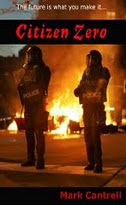Timeless fantasy eschews myth for Medieval real
Mark Cantrell re-visits a gargantuan tome that takes fantasy out of Tolkien's 'Heroic' age and propels into the rugged realism of medievalism
Author: Tad Williams
Format: Paperback
Source: Amazon
Authors Website: www.tadwilliams.com
Title: Memory, Sorrow, Thorn Trilogy
- The Dragonbone Chair
- The Stone of Farewell
- Towards Green Angel Tower – Siege
- Towards Green Angel Tower – Storm
THIS is a mammoth trilogy, which strangely comes in four door-stopping volumes (at least the editions that I read), but don't let the sheer epic scale of this novel put you off.
I first read this series beginning back in my student days, returning to it on a number of occasions for a re-read, and each time it reveals some more its depth and subtlety. Rich in vivid detail, Tad Williams has presented a complex and sophisticated fantasy that inevitably brings comparisons to Tolkien’s Lord of the Rings, however, this is unfair to both titles.
Both must be considered as what they are: standalone works that weave in-depth and detailed characters into a complex, multi-layered story that nevertheless portrays the eternal theme of good against evil.
However, while there is a depth and complexity to Tolkien’s work, it is much more in the heroic vein, dealing with more mythologised archetypes than does Williams' work. Here, he presents more of a landscape of Mediaeval realism, if it can be put in such terms, but his heroes and villains and the underlying mythical landscape is no less compelling for that.
In both worlds, evil is the product of fallen virtue – the arch-villains did not start evil but fell from grace, however, where Tolkien’s Dark Lord resonates with Christian mythology of the Fallen Angel, Williams' Storm King is a demonic monster of subtler, more tragic origins, and it was the cruelty and brutality of Man that had a hand in his fall.
When the Rimmersmen, a Viking-like people arrive in the lands of Osten Ard, they bring with them iron – a deadly metal to the immortal Sithi – and an even deadlier lust for conquest and colonisation. They scourge the Kingdoms of men and strive to destroy the race of Sithi they deem to be demons. And so these invaders sow the seeds of cruelty and destruction that reaps a terrible harvest of evil in the centuries that follow.
When his people are driven to the brink, under siege in their ancient home of Asu’a, Prince of the Sithi Ineluki works a dark and terrible magic to repel the invaders and save his people. Though he cannot repel the invaders, he at least creates an avenue of escape for those of his kind to find a chance to flee into hiding, but in the process, Ineluki becomes the Storm King, a creature that lurks beyond death, sustained by hate, that now embarks on a far-reaching plan to return from death and exert a cruel revenge on humanity.
The story follows the fortunes of Simon, a kitchen boy, who finds himself caught in the heart of the calamitous times that engulf his little world. Whether he likes it or not, he’s got destiny written all over him, and he’s got to grow up fast.
Whether it’s the panoramic landscapes, the intense and cruel battles, right down to the tiniest foibles and personal quibbles between the characters, Williams’ writing is evocative and engaging. The characters instantly set up residence in our minds as living, breathing people caught up in events beyond their understanding, beyond their measure, but never once losing their existence as an individual.
Coming in four hefty volumes (book three is split into two), this is a marathon read, but it is well worth the effort. Indeed, the story and the vivid characters soon pull you in until you are carried along, a ghostly observer in their world, as they face the greatest threat that Osten Ard has ever endured.
The word fantasy may put many off, but this is no sword and sorcery tale of derring do, rather fantasy of the intelligent kind. It is, if I dare suggest, literature in the best use of the word, a high drama, a thriller and a horror, and filled with humanity in all of its complex, timeless essence.
As with all the best genre fiction, Memory, Sorrow Thorn refuses to be bound by the label, even as it adds depth and complexity, and reaches out to make itself felt beyond the shelves of fantasy and preconceived perception.
Mark Cantrell,
Stoke-on-Trent,
2 April 2011
Copyright © April 2011. All Rights Reserved.
Category: REVIEWS




























0 comments:
Post a Comment